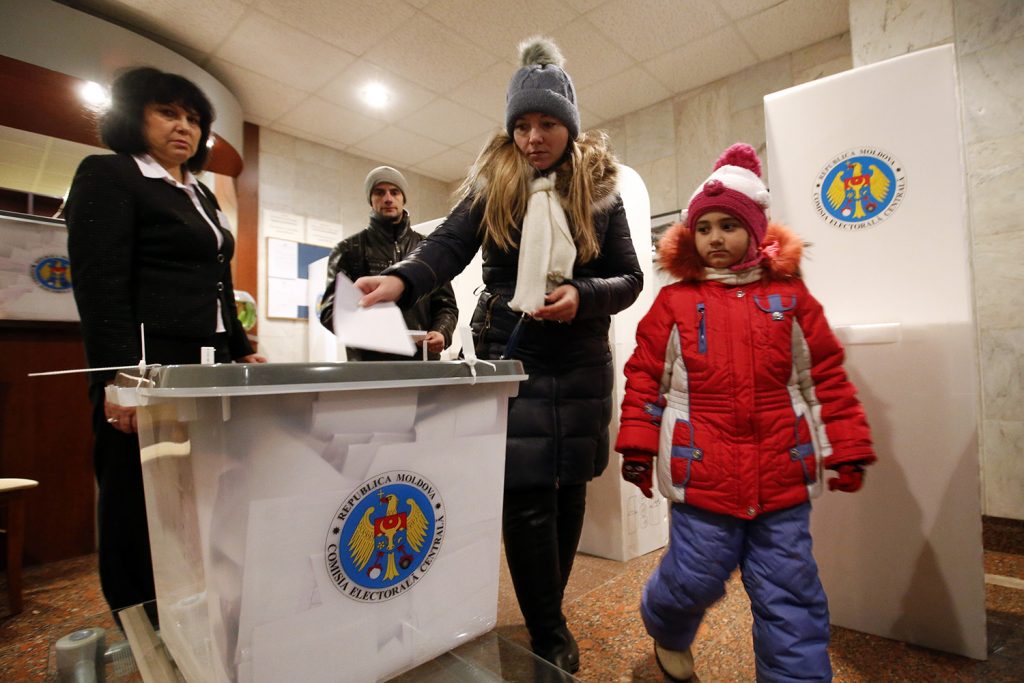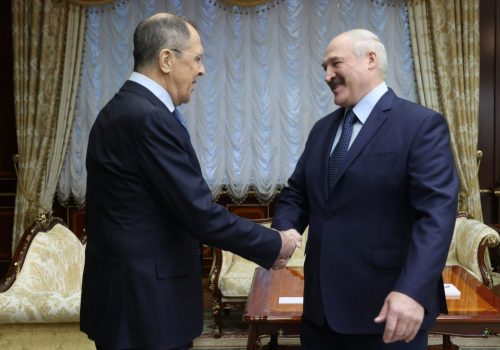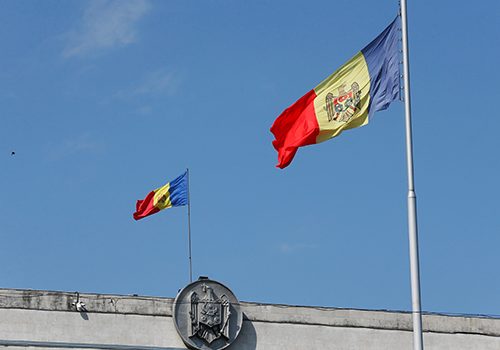The United States wasn’t the only country to have a dramatic November presidential election. In Moldova, Maia Sandu, a Harvard-educated, pro-reform candidate who favors closer ties with the European Union, triumphed on November 15. The small Eastern European country of 3.5 million sometimes described as a “state captured by oligarchic interests” has struggled to establish a strong and independent democracy. Sandu ran for president in 2016 on an anti-corruption platform but lost to pro-Russian politician Igor Dodon, who promised to dismantle oligarchic power structures but eventually turned his attention to capturing them for himself once in office. Sandu’s November victory may represent a turning point in Moldovan politics, with 58 percent of voters choosing to reject oligarchic politics and embrace reform, democracy, and ties with the West.
Sandu owes her victory in part to a new dynamic force in Moldovan politics: the diaspora, which has kept the Moldovan economy afloat for years and is now making its political voice heard, even as the oligarchs and their allies attempt to keep the diaspora on the sidelines.
Who are the Moldovan diaspora?
Between 1.2 and 2 million Moldovans, or a third of the population, live and work abroad. Most of these Moldovans went abroad to seek economic opportunity: plagued by corruption and poor governance, Moldova has long been a hostile environment for local businesses. With foreign economies offering better pay and stability, many choose to work abroad, even in jobs they are overqualified for. Until the mid-2000s, most Moldovan migrants went to Russia, but the most popular destinations now lie in the west. Thanks to a simplified Romanian citizenship process for Moldovans and the EU’s policy of visa liberalization, Moldovans now have greater access to the higher salaries offered in the EU. This easier access to European employment has shifted the trends in Moldovan emigration, with a majority of the Moldovan diaspora now residing in Western Europe.
The diaspora is an essential part of the Moldovan economy. Many Moldovans, especially the elderly and those living in rural areas, rely on money sent home by relatives working overseas. Remittances made up 16 percent of Moldova’s gross domestic product in 2019. Nearly one quarter of households would fall beneath the poverty line if they stopped receiving remittances, and one fifth of all households with children have a member working abroad.
Subscribe to Fast Thinking email alerts
Sign up to receive rapid insight in your inbox from Atlantic Council experts on global events as they unfold.

Efforts to suppress the diaspora’s political power
Moldova’s oligarchic government has long tried to limit the diaspora’s influence. In 2016, the ruling Democratic Party, in alliance with Dodon’s Party of Socialists, voted to change Moldova’s proportional electoral system to a mixed one. Diaspora voters used to be able to participate in contests for all 101 seats in parliament, but the reforms limited this to only fifty-three seats. A January 2019 ruling by the recently appointed Constitutional Court declared that voting with expired passports was illegal, despite a 2014 Supreme Court of Justice ruling that affirmed the legality of voting with out-of-date passports. Since most Moldovans abroad rely on Romanian passports or permanent residency cards to travel and work, this ruling disproportionately impacted their ability to vote. More recently, Moldovan President Igor Dodon called diaspora voters a “parallel electorate,” accusing them of being out of touch with the country’s needs.
Despite these efforts to disenfranchise diaspora voters, Moldovans living abroad have continued to hone their political power. Adopā un Vot, a Facebook group dedicated to organizing diaspora voters, helped get Moldovans living abroad to the polls in 2016 and 2020. And FreeMoldova, a pro-democracy group founded by Moldovans in London, connects diaspora efforts to support free and fair elections with domestic organizations. These efforts seem to be working; diaspora voters cast a record 262,000 votes this year, most of them in Western Europe, up from 138,000 in 2016. The Moldovan diaspora was essential to Sandu’s victory: while Sandu carried Moldova by a margin of only 27,000 votes, she earned 244,000 votes, or 93 percent of voters, abroad.
What comes next?
Sandu’s decisive victory on November 15 marks a rejection of oligarchic politics by voters, but the fight for a more democratic Moldova is far from over. Because Moldova is a parliamentary republic, Sandu needs allies in parliament. To that end, her party has called for snap parliamentary elections, although it remains uncertain whether these will be held. It is also uncertain if, given electoral rules, Sandu and her allies could do as well in legislative elections as she has done in the presidential vote.
With more than half of all Moldovans of voting age living in the diaspora, their political influence will likely grow. If so, the Western course of Chisinau’s policy is likely to strengthen. It is essential that the EU especially, but the United States too, be ready to increase their support for Moldova. They can do this by encouraging grassroot efforts to increase voter turnout and fight corruption and bolster existing programs dedicated to developing Moldovan society. The purpose is to facilitate Moldova’s efforts to integrate into the West both economically and politically. Doing so will contribute to the overall stability of Europe’s East.
There is a clear appetite for change in the small former Soviet Republic. Moldovan voters, spearheaded by the diaspora, overwhelmingly chose a pro-reform, pro-EU candidate for president. Time will tell if Moldova will be able to fulfill this mandate.
Sabrina Hernandez is an intern in the Atlantic Council’s Eurasia Center.
Further reading:
Image: A woman casts a ballot during a parliamentary election at a polling station at the Moldovan embassy in Moscow, November 30, 2014. Ex-Soviet Moldova voted on Sunday as polls showed the outcome might slow, though not halt, its moves to shift towards the European Union and away from Russia, which has hurt its economy by banning its wines and other prime exports. REUTERS/Sergei Karpukhin



